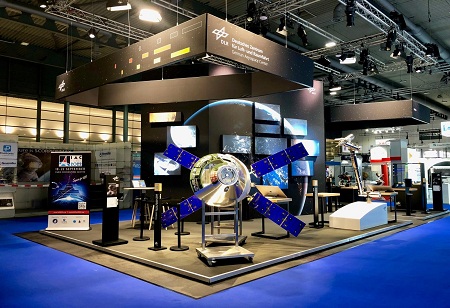
China impresses U.S. tech giants at Shanghai AI expo

 Big American IT firms have descended on Shanghai for the World Artificial Intelligence Conference, which stands in stark contrast to Washington's continuous efforts to economically isolate China.
Big American IT firms have descended on Shanghai for the World Artificial Intelligence Conference, which stands in stark contrast to Washington's continuous efforts to economically isolate China.
The opening ceremony included a virtual address by Qualcomm CEO Cristiano Amon, who said the company will supply the most complete and comprehensive technology and solutions in China and the world. Apple, Advanced Micro Devices, Facebook parent Meta and GE HealthCare also have executives or booths at the event, according to Chinese media.
Europe's semiconductor industry is represented as well, with executives from Netherlands-based NXP Semiconductors, a major supplier of automotive chips, and Germany's Infineon Technologies discussing development plans.
The strong American showing is good news for China, which needs advanced chip technology to power its AI development and is keen to win over companies that can provide it.
The business opportunities afforded by the massive Chinese market remain essential to many American companies. China is a leading information technology production hub, as well as the world's top auto production center -- an increasingly important field for chipmakers as the number of semiconductors used in vehicles continues to rise.
Qualcomm generated roughly two-thirds of its sales last year in China, a major production base for many of the smartphone manufacturers that are among its main customers. The country accounts for just under 30% of sales at AMD and Intel, 20% at Micron Technology and over 30% at NXP.
This trend has continued even in the face of U.S. government measures intended to cut China off from these companies, or to lure them back home, as the two countries compete for tech superiority.
Economic sanctions imposed under previous U.S. President Donald Trump specifically targeted semiconductors, seen as a weak point for China's economy. Telecommunications equipment makers like Huawei Technologies and ZTE were barred from doing business with American chip suppliers.
U.S. President Joe Biden's administration has followed a similar strategy as tensions rise over Taiwan. Biden signed legislation in August earmarking $52 billion in subsidies for domestic chip manufacturing.
"Maximizing profit is the most important thing for American companies," said a Chinese securities analyst and semiconductor industry expert. "They need to make money in the huge Chinese market as long as it doesn't violate U.S. rules."
Even U.S. internet companies that have been frozen out of China or face heavy restrictions there cannot afford to ignore it.
"We will help connect Chinese companies to foreign consumers," Jayne Leung, head of Greater China at Meta, said at the conference.
In July, Amazon.com and Google participated in an international trade fair in Chongqing, marketing services to help Chinese enterprises export to the U.S.
Widening the distance between American companies and Washington's decoupling push has become an important task for Chinese businesses looking to Western partners for the advanced technology they need for a leg up in strategically important areas such as self-driving vehicles.
Search giant Baidu has said it is using Qualcomm chips in a smart electric vehicle that it is developing with a private-sector partner.
"China is a global front-runner in autonomous-driving technology," Baidu CEO Robin Li said at the conference. "Regulatory reform will integrate AI into the real economy and push society forward."

